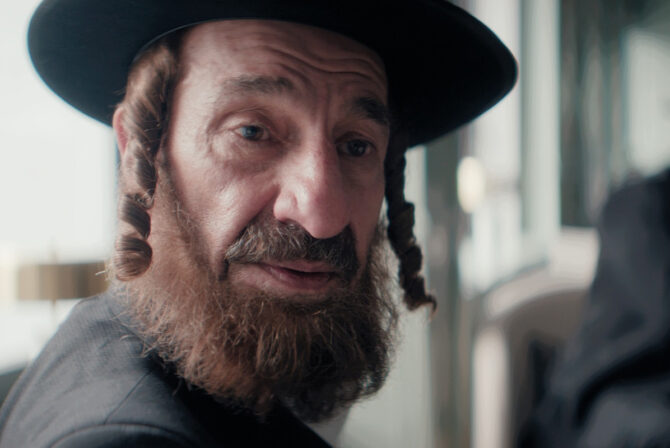I am sitting with my daughter after dinner, before her bath. We’re thinking about making groggers, those noisemakers for Purim, when suddenly we’re analyzing the Purim story—in particular Queen Vashti, who said “no” to the king’s request for her to come to his party.
My 5-year-old asks, with brows scrunched, upturned palms, and shoulders raised, “So why didn’t Vashti just go to the party?” What was the big deal? Surely she could have put on some ruffles, eaten some fancy cupcakes, and maybe played a game! Who turns down a party? My girl’s incredulity borders on a potential “Seinfeld” episode. What is the deal with Vashti?
Purim brings up these longstanding social norms and the choices we make as women, particularly, at every age. For some reason, I remember growing up, thinking that Vashti was empty and vain. Did we judge her for refusing the king? Did we just dislike Vashti because Esther was the next choice and the real beauty, inside and out?
To answer my daughters questions, I provide a few scenarios, including the likelihood that King Ahashverosh and his entourage had been drinking so much wine and maybe they were not very nice. Can you imagine? Seven days of drinking fabulous wine in the exultant palace of Shushan, while Vashti hosts her own party for the women. The very drunk men must have been lustful or power-hungry. The queen was summoned to wear her crown (and some speculate, only her crown). It could have been Hooters meets The Jersey Shore, mixed with something much worse.
Whatever the reason, Vashti said, “No,” even to the king, despite his infinite power to banish her, cutting her off from whatever glamour she is accustomed to. She refuses the command. Those near the king state their grievances and fears: Every woman in the kingdom will know of Vashti’s disrespect and dishonor. Wives will become rebellious! Pandemonium will ensue! We must make an example, they warn.
The angry, perhaps hurt, King Ahashverosh delivers an edict. And like that, the queen is deposed. She is no longer needed, booted out of the palace and some speculate that she lost more than her title, more than her wardrobe, perhaps her life.
My daughter sits wide-eyed, listening and picturing such a scenario. Beyond the lurking Haman who has chosen the single day in which all Jews, young and old alike, would be murdered, there are other tricky situations to discuss. Turns out Purim is not all triangular cookies and grape juice.
I think of the times I see my daughter unwilling or uncomfortable about something I want, something expected of her. There are the times she didn’t want to hug a family friend. The times she said “no” at eating a green veggie or shiitake mushroom, the times she learned the strength of her voice rising in that two letter word. There is always a choice. She might change her mind later, or wish she could go back and say “yes” to something, but it is a voice—their own—our daughters need to be learning.
I aim to provide ample, daily opportunities for my kids to voice their ideas, the “yes” and “no” responses, and I ask for their reasoning behind these. What if I never allow my daughter to decide her own parameters for physical closeness, if she never hears the strength of her voice, empowered?
For the record, I do not support or permit my kids to be rude or disrespectful in saying “no.” In fact, it is our 2-year-old boy who says, “No thank you, Mommy” to a task he doesn’t want to do. We talk. I still may insist that he do something if it is for his safety or health. He gets to make choices, though, and deal with any appropriate consequence.
There may come a time when my son really should say “no” to a coach, teacher, or another leader, a time when he or his sister should yell and scream, “No!” Not everyone in leadership or authority is pure in heart. My very own childhood rabbi was jailed for child pornography. Kids need the strength of Vashti and the wisdom of Esther. (Of course, we still don’t know anything conclusive about Vashti, save her decline to the guys’ party, so I don’t want to crown her character amiss.)
I hope to see my kids grow unabashed in their identity, not shamed into saying “yes” for something that is uncomfortable or unjust. I hope they keep that childlike nature that is honest, and full of verve and personality. To learn consequences—the great, the horrible, and their key responsibility.
Until next year, chag sameach! Have another cookie. Or don’t! You get to decide.
Read More:
Mayim Bialik & Melissa Rauch Talk ‘The Bronze,’ Bat Mitzvahs & Big Bang’s Jewish Rivalry
3-Year-Olds Get a Bad Rap. Here’s 10 Reasons They’re Actually Great
Now There’s a Backpack for Kids with Autism







